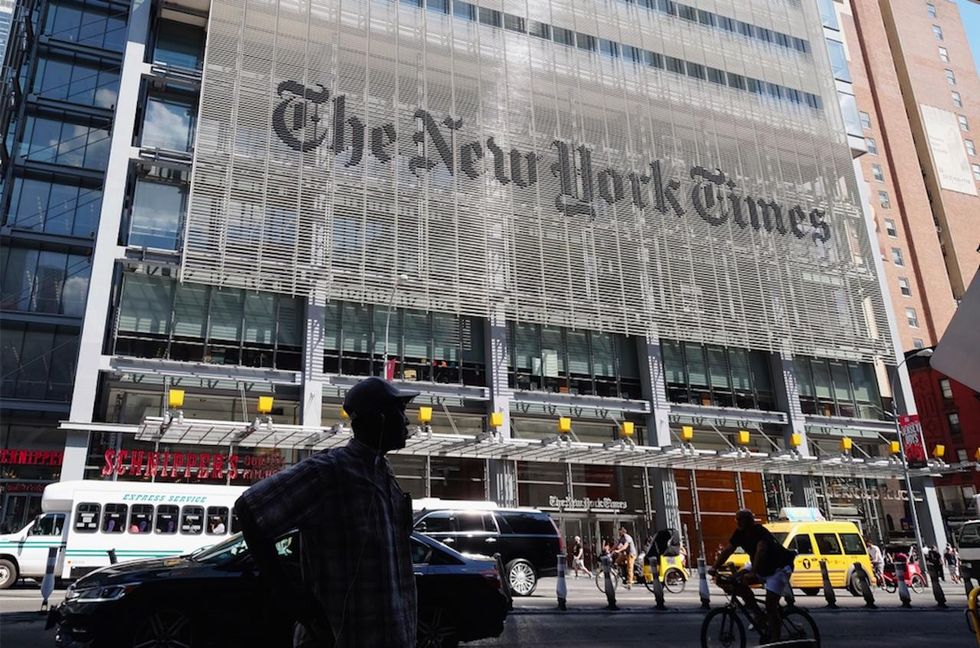
The New York Times wants "your help" identifying "false information being spread deliberately to confuse, mislead, or influence voters ahead of the 2018 midterm elections," the paper said in a Tuesday tweet. (Photo by Mike Coppola/Getty Images)

The New York Times wants "your help" identifying "false information being spread deliberately to confuse, mislead, or influence voters ahead of the 2018 midterm elections," the paper said in a Tuesday tweet.
In an article focusing on specifics of its request, the Times said it wants "examples of online ads, posts and texts that contain political disinformation or false claims and are being deliberately spread on internet platforms to try to influence local, statewide, and federal elections."
Times' reporters hope to use reader tips for their stories, the piece said, adding that all you have to do is upload a screenshot to a form.
Some examples of "social media disinformation" the paper said it's looking for may include:
The Times said it's also looking for "sketchy digital campaign ads" that aren't clearly labeled or don't indicate funding sources.
The paper said it's not after social media posts or news stories "you don't agree with" or examples of political robocalls or campaign emails.
Given "fake news" complaints about the mainstream media in general — and the Times' recent botched story on U.S. Ambassador to the U.N. Nikki Haley’s curtains — more than a few found humor in the request from the often-dubbed newspaper of record.
Conservative commentator Erick Erickson pulled no punches:
Jesse Jane Duff — a retired Marine gunnery sergeant and fellow with the London Center for Policy Research — had this to say:
Others saw things from the opposite side of the political aisle, suggesting the Times should simply keep an eye on what President Donald Trump tweets and what Fox News reports in order to collect examples of false information.
(H/T: Washington Times)